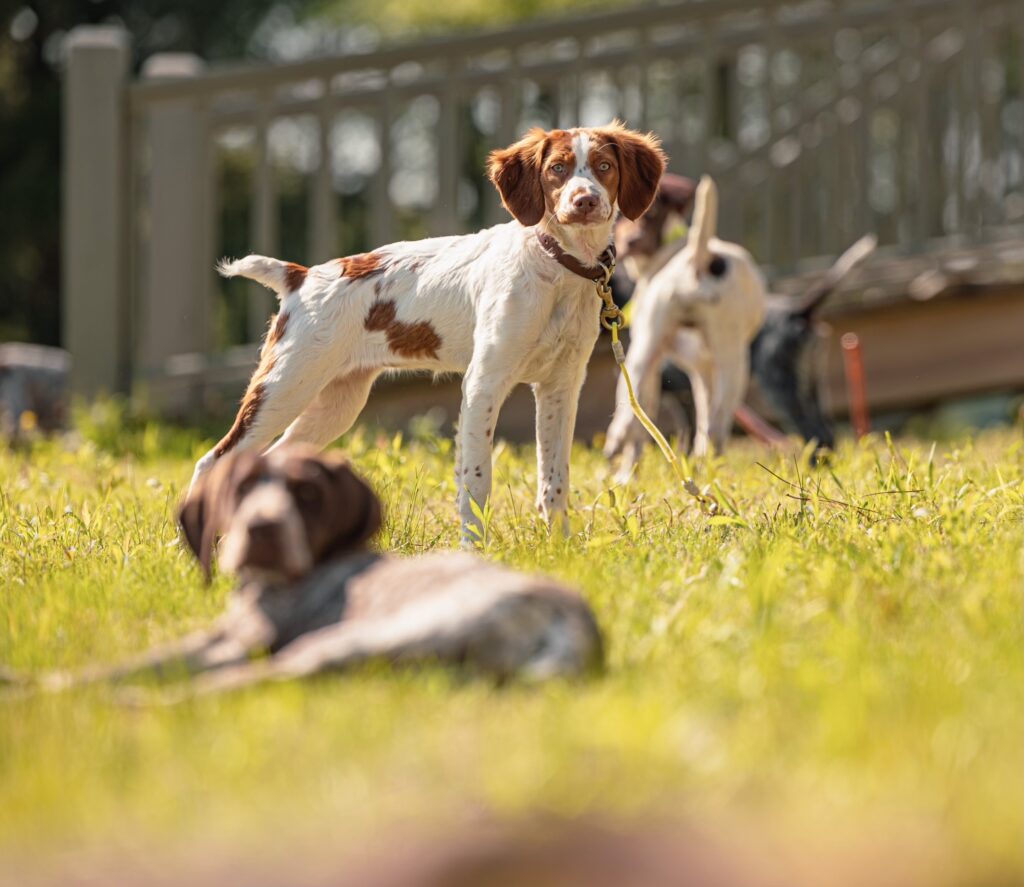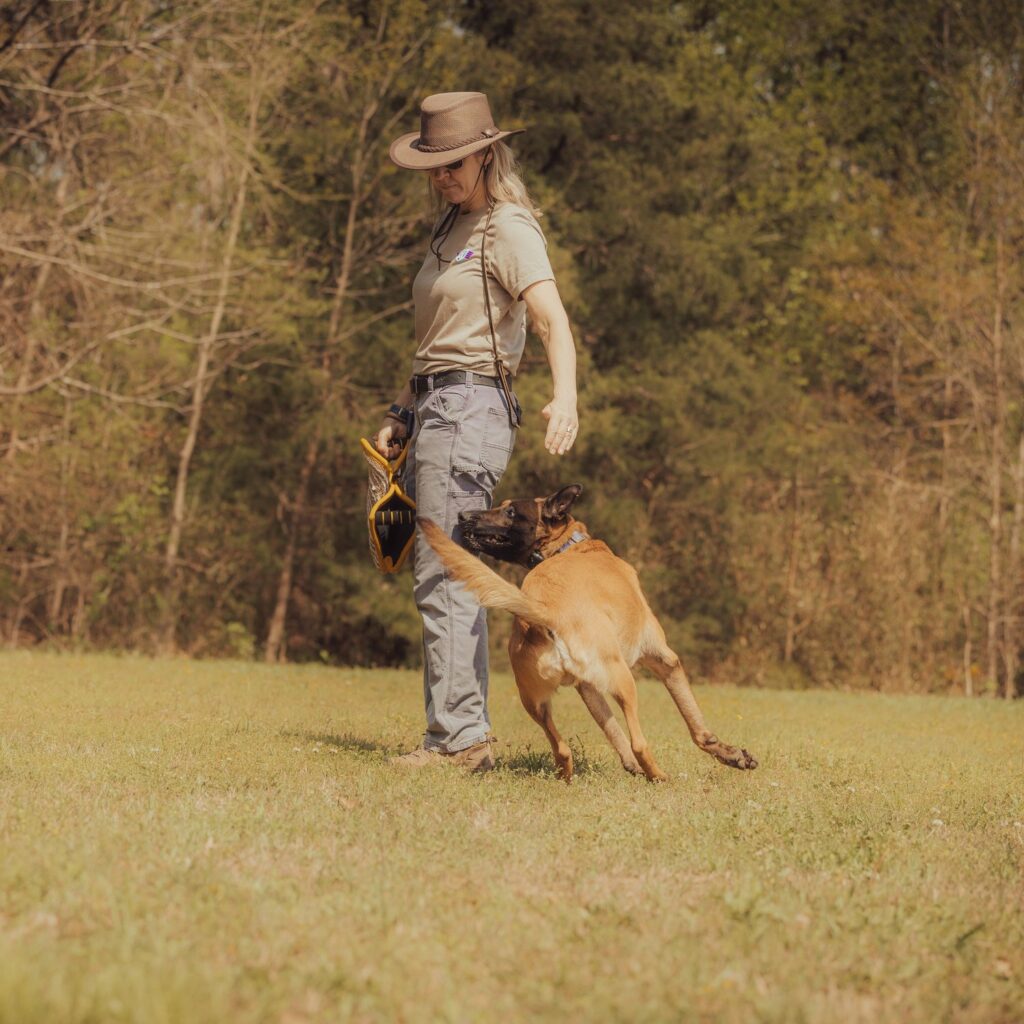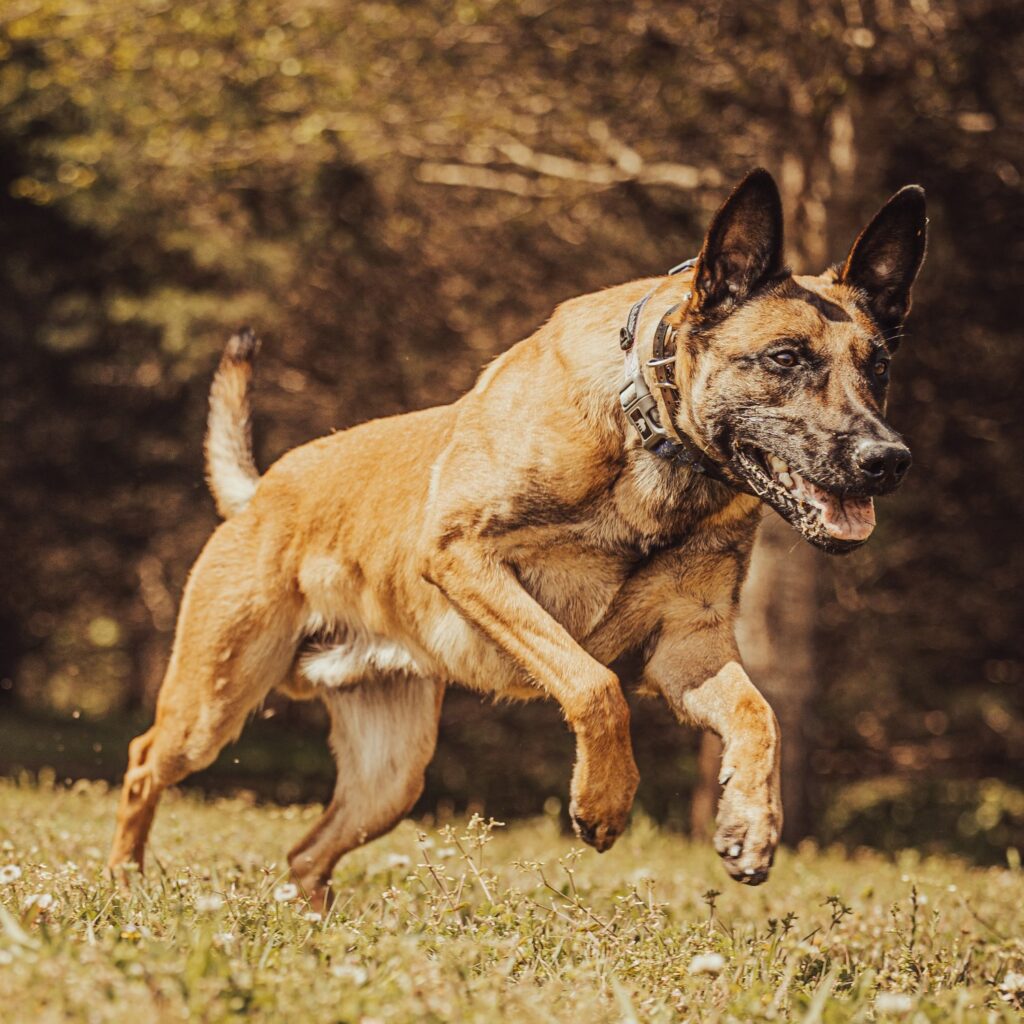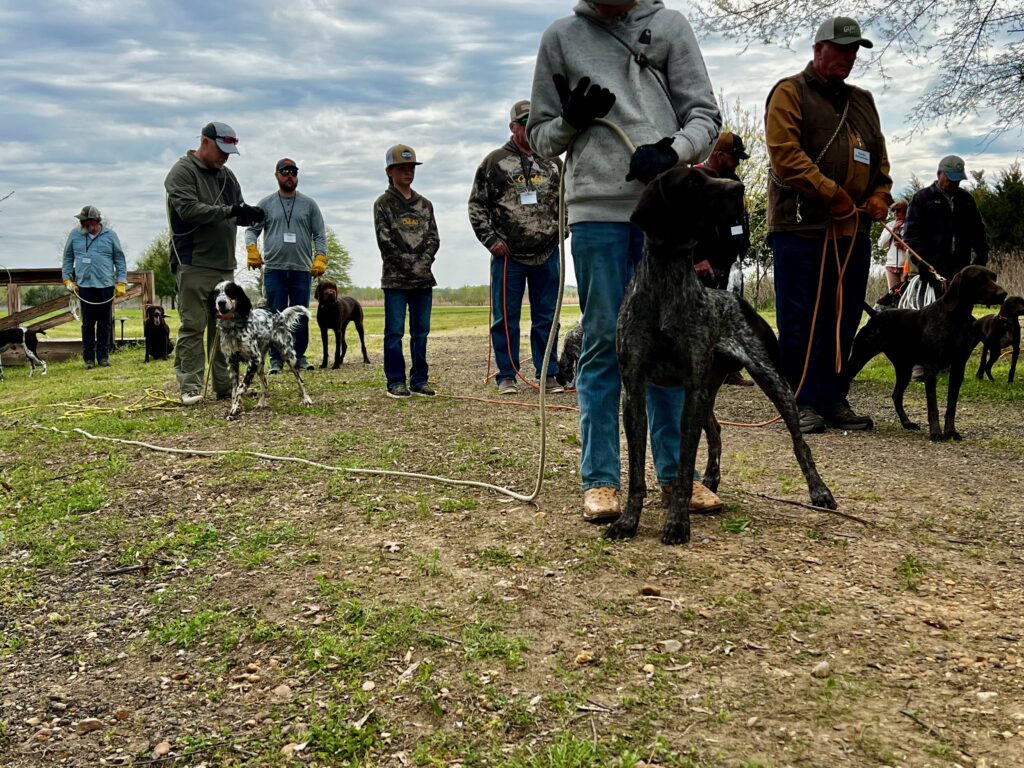I recently returned from a trip to Mississippi, where I attended a training workshop. The focus was upland bird dogs. If you’re not familiar, these are dogs that point and flush birds that nest on the ground, such as quail, partridge, dove, pheasant, etc. Gimli and I logged 1500 miles to get there and back to Iowa in a whirlwind six days, but it was worth it!
You might wonder why a pet dog trainer would go to such lengths to participate in a working bird dog seminar. Perhaps you’re thinking, Robin, are you intending to get a hunting dog?
The answer to that question is no. I don’t hunt and have nothing against it. I grew up with hunting. My dad and brother were avid hunters, although not upland birds. But the goal to get into the bird dog game was not my reason for attending.
Beyond wanting to visit some long-time friends, I simply adhere to the idea that training is never finished—not with our dogs, not with ourselves. There is always something to learn. My personal opinion is that pet dog trainers would do well to study outside of their niche if they really want to get good at their craft. I posted on Facebook about this belief and enjoyed the feedback shared by other trainers on the topic.
As a professional, I have confidence that every workshop or seminar we attend can teach us something. Even on the rare occasion that attendance leaves us with a lesson we will never use, that is still valuable information. It will make us better and more knowledgeable about why we do what we do.
The vast majority of the time, gems are revealed. Those gems may be brand-new revelations or pieces of the puzzle we haven’t heard before. Concepts that we may not even have known were missing!
Sometimes, we hear pieces that we’ve known for a long time, but someone explains them in a new way. It refreshes our thinking on a valuable concept. The bottom line is that there will never be enough hours in a lifetime to “know it all,”…which is why I continue to seek experiences that put me outside of my comfort zone.
My trip to see Ronnie Smith and hang with my friends from Gun Dog Supply was one of those times. I didn’t attend with a bird dog. I went with my young Malinois. Not because I want him to point upland birds..but because he’s my current travel buddy, and I knew he could use the experience of “not being involved.” His skill in the art of “observation only” is sorely lacking. 🙂
Dog training is a rich and complex profession. As professional trainers, we have to learn not only about canine behavior but also become proficient in reading and influencing humans. If we don’t learn that part, we can never reach the goal of helping a dog and handler become a well-oiled team. If for no other reason, observing other instructors coach pet owners is a fascinating piece of the puzzle that I never tire of.




As a side note…when I say there are gems that reveal themselves, I believe you get the highest return on investment when you spend time with people who have been in the profession for a long while. The folks that have been there, done that, are (generally) more likely to be introspective in the realization that they don’t know it all. The school of hard knocks and disappointments provides a rich experience base to draw on when sharing information on how others should proceed with their dog training journey.
My trip was well worth the time and 1500-mile drive. Drop me a comment below. I’d love to hear where your learning adventure is taking you next!
Learning is never done, doctors and lawyers “practice” their skills because each case is different and they need to be prepared. I have been training dogs since the 80s (hard to believe) and it’s always been a fascination on how we communicate with a dog and how they learn. I started working with retrievers and I actually feel fortunate that I have been involved this long, I have lived through the early days of very intense training, lived through the introduction of E Collars and the evolution of them. I watched as the “Fear Free” movement developed, the science based crew and up to where we are today. In todays world to develop a “Reliable dog” the industry is based More on Teaching, Developing and Conditioning. Or teach, train test. Teach the position or activity, train it, then understand how to use a setup to test it to see how well the dog understands the concept.
A long while back I took a one day seminar on how to use food and most of my crew thought I was crazy because at that time very few actually used food in field training. I took so much from the course it was unbelievable. The instructor talked about why to use food, how to use, how to deliver it and when to deliver it… Also what to do if the dog isn’t food motivated.
I have taken two courses from Ian Dunbar and reactivity, not that there is a lot of reactivity in most retrievers however there is some. Learning how to deal with it or train so it doesn’t show up is important. I have taken courses from almost every facet of the industry because everybody has a different perspective on how to deal with issues or train to avoid them. It is just a matter of time before you run into a dog that responds better to their techniques than yours!
I always want to know why, for instance why did the dog not stop on the whistle? Did it decide it didn’t want to or did it not hear it or possibly sitting on the whistle isn’t as well developed as the handler thought. All of those issues will have different responses from the handler. Most beginners and novice trainers will immediately go to a correction when in the majority of the time it was a training issue and not an obedience problem.
In this industry there is major issue with mentors and the lack of quality mentorship so many rely on youtube to learn from newest, hottest trainer to resolve an issue. The problem with that is the youtubers are always addressing symptoms and never address why the dog is doing the behavior or what is causing it. They immediately go to using corrections when in fact the behavior issue is generally a learning or teaching moment. Remember we get back what we put in!!
There is a need to develop mentors in the industry where they could actually get accredited from quality trainers. Perhaps IACP could address this?
After forty years I have developed meaningful relationships with fabulous trainers and pro’s and when we get together it is always based on discussing issues we may be having and how to address them, it is more of a collaboration on the dogs thought process and why it may be having difficulty with a concept. We have very diverse backgrounds however we happy to pass on information that may be of help in developing a trainer and the dog.
I was told long ago that “24 hours a day 7 days a week in a dog/human relationship someone is training someone, it’s just a matter of who is winning?”
Thank you for sharing your thoughts Jerry. A lot of wise words there.
I do hope the industry can continue forward recognizing the truth that much of the “old wisdom” often blends perfectly in sync with the “new science”. One just needs to be observant and humble enough to find the cross overs between the two.
Great article, Robin. And so true.
Thank you Barbara!